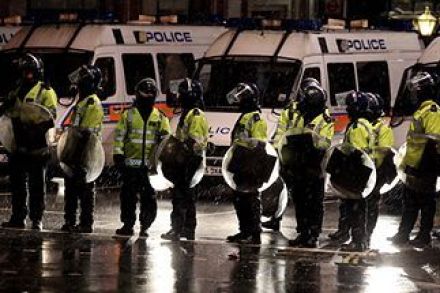Live-blogging the protests
1540: Heading back to Spectator HQ but it’s blocked off. They appear to be kettles in parliament square. The horses appear to be keeping the crowd back. Fence is being thrown around again. 1530: Milbank is full of police vans, they have to put them somewhere. Police are turning away people from Parliament Square. Police are using riot-proof cameras for evidence. 1455: The Met are shouting and trying to get everyone back on the planned route, but the crowd are beyond caring. A bystander pointed out Parliament Square is being used (more likely destroyed) for the first time in months. 1445: A view from a parliamentary researcher: “Life goes on




















